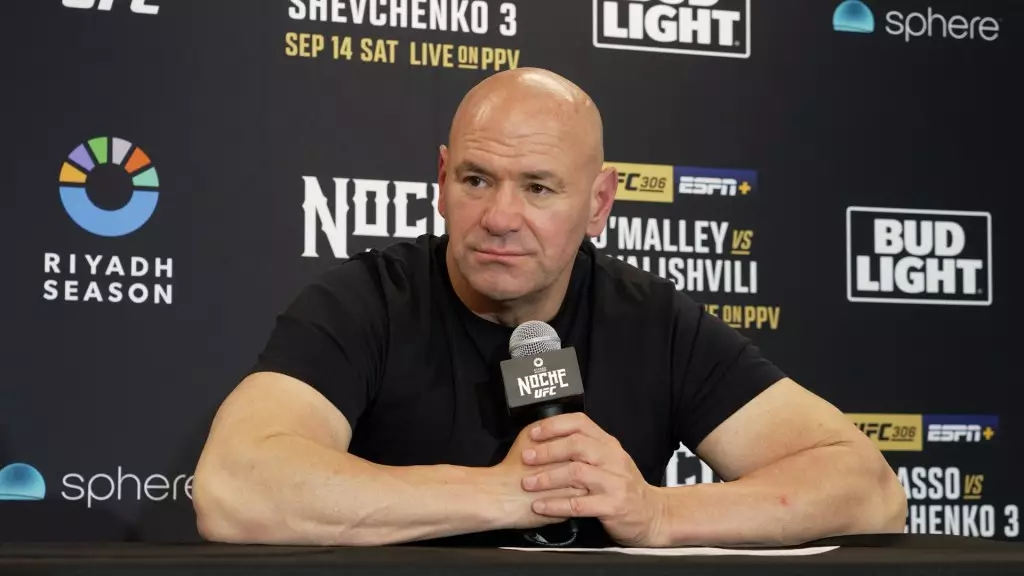The recent matchup at UFC 306 between Sean O’Malley and Merab Dvalishvili marked a significant turn of events in the bantamweight division. As one of the promotion’s standout stars, O’Malley faced Dvalishvili, an opponent whose capabilities had long been established, yet the outcome surprised many: O’Malley lost his championship belt by unanimous decision. This loss raises questions not only about O’Malley’s performance but also about what challenges lie ahead for the division as a whole.
Throughout the fight, O’Malley struggled to showcase the razor-sharp skills that had garnered him a legion of fans. UFC CEO Dana White noted that O’Malley appeared to lack the intensity usually evident in his performances. Spectators and analysts alike agreed that O’Malley’s game seemed subdued, particularly in the earlier rounds, where he recorded an uncharacteristically low number of strikes—just six in some rounds. This highlights a common concern in combat sports: the impact of pressure on a fighter’s performance. Despite no obvious injury or external factor inhibiting him, O’Malley’s condition raised eyebrows.
On the other hand, Dvalishvili’s victory can be largely attributed to his strategic prowess and unyielding pressure. With an impressive record of 18-4, he demonstrated exceptional skill in grappling and striking that overwhelmed O’Malley. In combat sports, a strong performance can shift momentum, and Dvalishvili’s ability to maintain pressure while thwarting O’Malley’s attempts to establish a rhythm proved pivotal. The contrasting fight styles showcased the importance of adaptability in high-stakes matches.
The bout didn’t lack controversy or peculiar moments. Dvalishvili’s interaction with O’Malley’s corner during the match raised eyebrows, drawing a warning from the referee and halting the fight. Notably, an instance where Dvalishvili apparently kissed O’Malley’s back—a bizarre gesture that many in the audience found perplexing—illustrated the sometimes unpredictable and theatrical nature of mixed martial arts. Such moments can overshadow the competition itself, making one question the professionalism and tactical discipline present in the octagon.
In the aftermath of the fight, questions loom over O’Malley’s future trajectory in the UFC. White, despite O’Malley’s disappointing performance, still views him as a fighter who thrives in high-pressure situations. The loss may serve as a wake-up call for the champion, prompting self-reflection and a reevaluation of his training strategies moving forward. If O’Malley intends to regain his title, he must rebound quickly and decisively, addressing the deficiencies observed in this outing.
Ultimately, UFC 306 not only shifted the bantamweight hierarchy but also illuminated the unpredictability inherent in combat sports. O’Malley’s loss serves as a reminder that even the most promising fighters face formidable challenges that can sometimes alter their careers. As the division evolves, fans and analysts alike will be watching closely for the next chapter in this unfolding saga.

